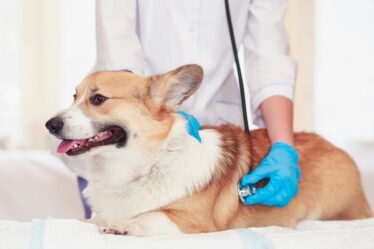
Caring for a beloved pet involves more than just feeding and playtime. Regular check-ups are a crucial part of ensuring their health and happiness. Just as we visit doctors for routine care, pets need veterinary attention to catch problems early. Maple Valley Veterinary understands the importance of these regular visits and how they can make all the difference in a pet’s life. These check-ups help identify potential health issues before they become serious. They also provide a chance to discuss any concerns about behavior or diet. Vaccinations, dental care, and weight management are common topics during these visits. Through consistent care, pets can live longer, healthier lives. Routine check-ups are a small investment in a pet’s well-being that can prevent bigger issues down the line. They keep our furry friends healthy and active, ensuring more quality time together. We owe it to our pets to keep their health in check.
Why Regular Check-Ups Matter
Regular check-ups serve as a preventive measure against various health issues. Many diseases can progress silently without obvious symptoms. A veterinarian can detect these early signs during a routine examination. Early detection often means easier and more effective treatment. This can prevent suffering and reduce medical costs over time.
What to Expect During a Check-Up
A typical check-up usually includes a thorough physical examination. The vet will check the pet’s weight, skin, coat, teeth, and ears. They also listen to the heart and lungs. These checks provide a good overview of the pet’s health. Sometimes, further tests like blood work or x-rays might be needed. The vet may also discuss behavior, diet, and exercise routines. This is a good opportunity to ask questions about any changes you’ve noticed in your pet.
Vaccinations and Preventive Care
Vaccinations play a key role in keeping pets healthy. They protect against dangerous diseases like rabies and distemper. During a check-up, the vet will review the pet’s vaccination schedule. They can administer boosters if needed. Preventive care also includes parasite control. Fleas, ticks, and worms can cause serious health problems. Vets offer advice and treatments to protect pets from these parasites.
Dental Health
Dental health is often overlooked but is very important. Poor dental care can lead to painful conditions and infections. These can affect a pet’s overall health. Regular check-ups include dental examinations. The vet can recommend cleaning or other treatments if necessary. Keeping a pet’s teeth clean helps prevent more serious health issues.
Common Health Issues Detected
| Health Issue | Symptoms | Preventive Measures |
|---|---|---|
| Obesity | Weight gain, difficulty moving | Regular exercise, balanced diet |
| Dental Disease | Bad breath, difficulty eating | Regular teeth cleaning, dental check-ups |
| Heartworm | Fatigue, coughing | Regular heartworm prevention treatments |
How Often Should Check-Ups Be Scheduled?
The frequency of check-ups depends on the pet’s age, health, and species. Puppies and kittens require more frequent visits in the first year. Adult pets generally need annual check-ups. Senior pets might benefit from more frequent examinations. A veterinarian can recommend a schedule based on individual needs.
The Value of Veterinary Expertise
Veterinarians are trained to provide the best care for pets. They have the expertise to diagnose and treat a wide range of conditions. Regular visits allow them to track a pet’s health over time. This helps in detecting any changes or abnormalities early. The American Veterinary Medical Association emphasizes the importance of a trusted veterinary relationship for pet health.
Conclusion
Regular check-ups are an essential part of pet care. They offer a safeguard against potential health issues. These visits provide peace of mind, knowing your pet is healthy and happy. Making check-ups a routine helps ensure our pets live their best lives. Taking the time to schedule these appointments is a small step with big benefits. It reflects our love and commitment to our furry companions. Let’s keep our pets healthy by making regular veterinary visits a priority.



